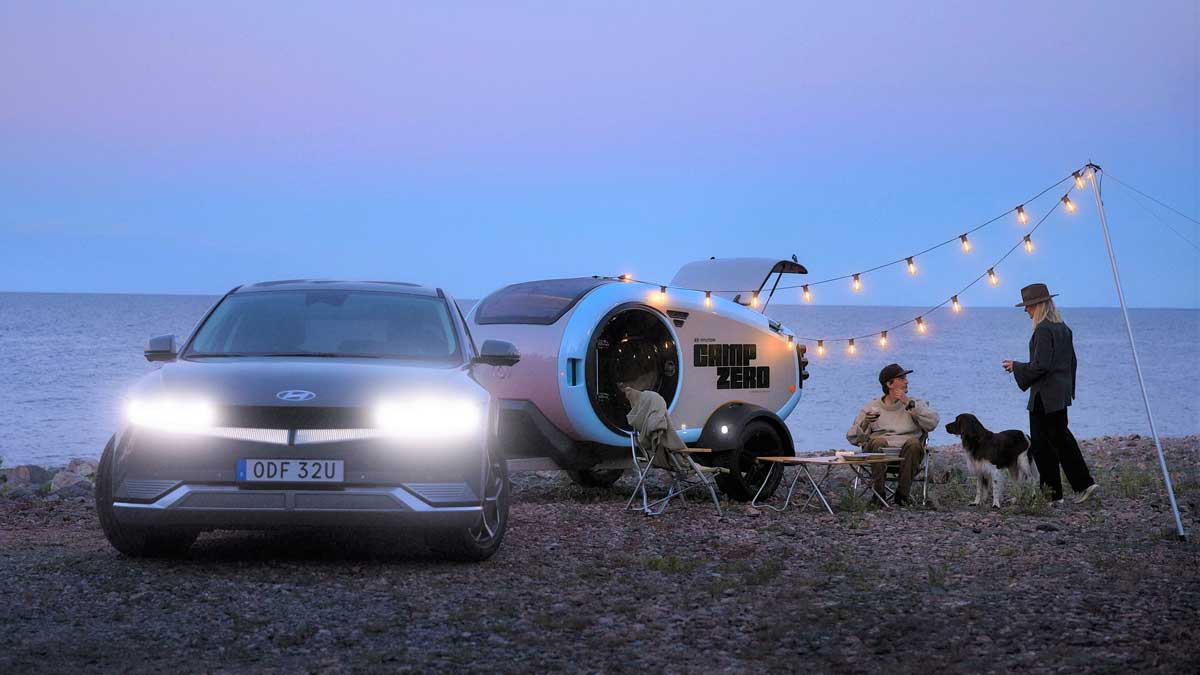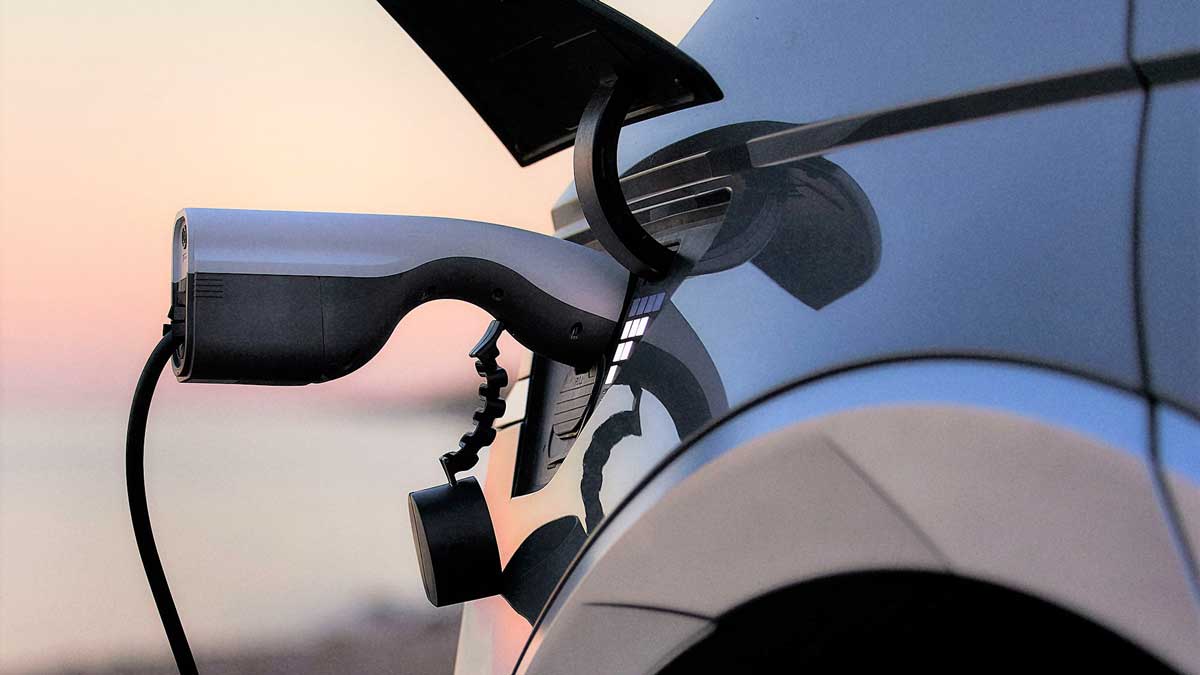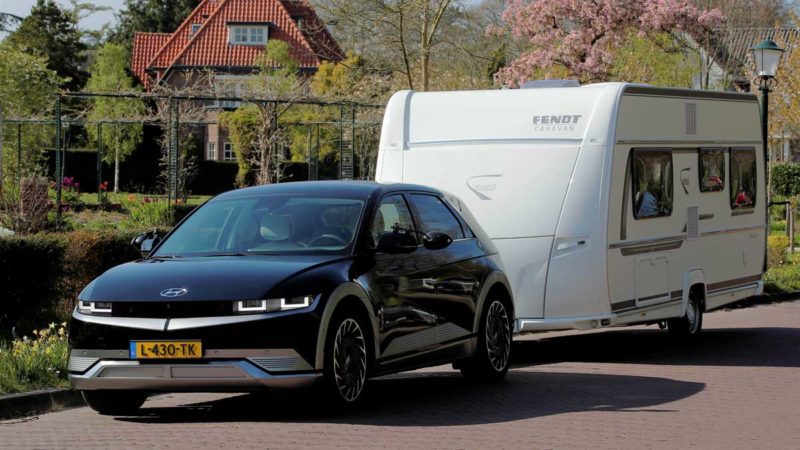I have often written about how electric vehicles do not ‘ruin the long weekend’. (The now infamous fabrication created by our previous Prime Minister as a generic put-down for Labor’s 2019 EV policies).
I have certainly proceeded to have many a long drive NOT ruined by being in an EV – be it my first in 2019 (in response to Scott Morrison’s whopper) or my latest drive to Perth and back from Melbourne.
I have also written about the coming crop of off-road 4WD EVs with heavy-duty tow ratings. In fact, since writing that article deliveries of several more 4WD/off-road EV models have begun in the US. (These being the GMC Hummer, Ford F150 Lightning and the Chevrolet Silverado).
Sadly for 4WD and off-road camp aficionados in Australia – these are some time away from arriving here.
In the meantime – Hyundai has gone out of its way to show how its Ioniq 5 EV can actually enhance both weekend-away and towing experiences. Shown with an example 6 berth, 7.5m caravan that fits within the 1600 kg towing capacity of the Ioniq 5, Hyundai have recently been talking up the benefits of towing with an EV over an ICE (Internal Combustion Engine) vehicle.

Using the example of the Ioniq 5’s low centre of gravity and weight centrally placed between its lengthened wheelbase (enabled by using electric motors in place of an internal combustion engine up front) – Hyundai is touting how these features ensure a ‘low, wide stance and the ideal centre of gravity for superior stability when towing’.
Add the extra interior passenger and luggage space available in the Ioniq 5 over an ICE vehicle of comparable size (due to its electric-only platform taking up room from the now redundant engine bay and adding it to the interior space) – and EV wins again over ICE.
Hyundai has also adapted the range meter to give better towing range estimates – so running out of charge unexpectedly is about as likely as running out of fuel in an ICE vehicle.
To quote Hyundai: “Using its telematics system, customers can set the weight category of their trailer and the expected driving range will be adapted accordingly even before the road trip begins. This means Ioniq 5 owners can plan their next charging stop ahead of time”.
On top of these advantages, Vehicle to Load (V2L) is an extraordinarily handy feature for camping trips. For those who have yet to hear about it: V2L provides 230V AC power using the main EV battery.
This means EVs with this feature become ‘power banks on wheels’ that can easily supply 230V AC. (In the Ioniq 5 it is limited to 15A, but that is more than enough to run anything up to a small induction cooktop).
By the way, there is no need to worry about running out of battery and not being able to make it back: V2L can run for weeks before flattening under a normal campsite load – plus for peace of mind, it can be set to turn off at a chosen battery charge level.

For those with the where-with-all to splash out on an EV tuned caravan: Hyundai in Sweden also launched ‘Camp Zero’ – an all-electric combination of the Ioniq 5 and a minimally designed, EV focussed caravan.
Featuring the aerodynamic, lightweight MINK Camper, Camp Zero boasts streamlined design and a net weight of only 520 kg to maximize towing range – plus it is equipped with an all-electric, V2L powered system that includes an induction plate, espresso machine, kettle, electric fridge/freezer, 230V outlets, speaker system and interior/exterior lighting.
To top all that off: the Ioniq 5 has also recently won the Royal Dutch Touring Club travel association’s ‘2022 Tow Car of the Year’ – the first EV ever to do so.
So it’s now been officially confirmed: EVs do long weekends BETTER.

Bryce Gaton is an expert on electric vehicles and contributor for The Driven and Renew Economy. He has been working in the EV sector since 2008 and is currently working as EV electrical safety trainer/supervisor for the University of Melbourne. He also provides support for the EV Transition to business, government and the public through his EV Transition consultancy EVchoice.

